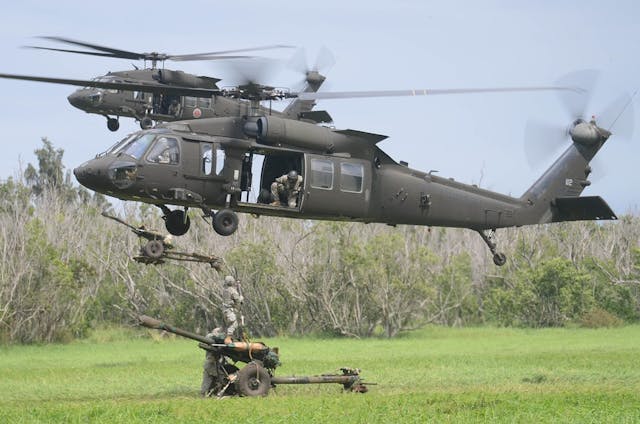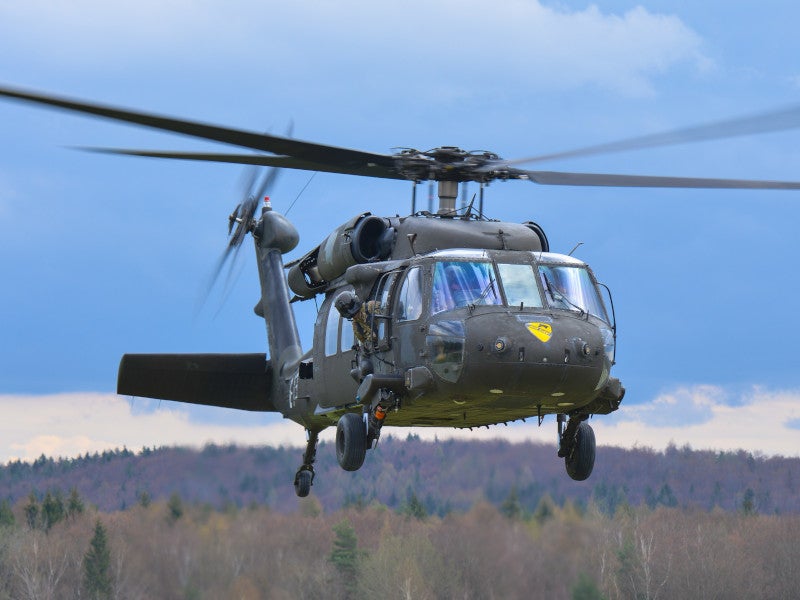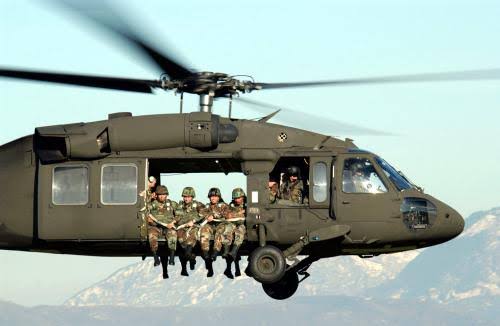Maintenance and Maintenance for UH 60 Helicopters
Maintenance and Maintenance for UH 60 Helicopters
Blog Article
The Effect of Sustainable Practices on the Future of Airplane Operations and Emissions Reduction
As the air travel market encounters raising analysis over its environmental impact, the fostering of lasting practices emerges as a crucial path towards future airplane procedures and exhausts decrease. Developments in lasting air travel fuels and improvements in crossbreed propulsion modern technologies stand at the center of this improvement, encouraging considerable decreases in greenhouse gas exhausts.

Summary of Sustainable Practices
Lasting techniques in airplane operations incorporate an array of strategies targeted at minimizing environmental effect while maintaining operational performance. These techniques are necessary in the air travel sector's commitment to decreasing its carbon footprint and adhering to global ecological standards. Trick efforts consist of maximizing flight paths to decrease gas consumption, enhancing maintenance methods to make sure aircraft run at peak effectiveness, and implementing advanced technologies such as winglets and light-weight materials that boost aerodynamics.

Training and involving staff on sustainability practices additionally play an important duty, promoting a culture of environmental duty within organizations. On the whole, the integration of these lasting practices not only aids decrease discharges yet likewise improves the lasting stability of the air travel industry, ensuring it meets the demands of both clients and regulative bodies while adding to worldwide sustainability goals.
Innovative Gas Alternatives
Numerous innovative gas alternatives are becoming critical services to lower the air travel sector's dependence on conventional nonrenewable fuel sources. Among these options, Lasting Aviation Gas (SAFs) have gotten considerable attention as a result of their prospective to decrease lifecycle greenhouse gas discharges by as much as 80% compared to traditional jet fuels. SAFs are stemmed from various feedstocks, including waste oils, agricultural residues, and even algae, making them a functional choice for the sector.
An additional encouraging alternative is hydrogen fuel, which, when utilized in fuel cells, generates just water vapor as a byproduct. Furthermore, electric propulsion systems are being explored, leveraging battery modern technology to power airplane.
Last but not least, biofuels acquired from biomass are being examined, offering a sustainable alternative that can be mixed with typical gas. Jointly, these ingenious fuel choices represent a vital action towards attaining a sustainable air travel community, lining up with worldwide emissions decrease targets and enhancing the industry's environmental stewardship.
Technological Advancements in Aeronautics

How can technological improvements improve the future of aeronautics? Developments such as electrical and hybrid propulsion systems are at the forefront, promising significant reductions in gas intake and greenhouse gas discharges.
In addition, the application of advanced products, such as lightweight compounds, adds to enhanced the rules of aerodynamics and fuel performance. The use of fabricated intelligence and artificial intelligence in trip operations enhances route planning and lowers fuel melt by allowing real-time changes based upon weather and website traffic problems. Additionally, the growth of autonomous and remotely piloted aircraft systems stands to change cargo and passenger transport, potentially enhancing efficiency while lessening human error.
In addition, lasting aeronautics modern technologies, consisting of innovative air web site traffic management systems, can simplify procedures and lower blockage, leading to reduced exhausts throughout trip. These advancements collectively represent a standard shift in air travel, assuring a future where sustainability and operational performance are intertwined, therefore sustaining the sector's commitment to reducing its ecological influence.

Governing Structure and Compliance
In light of the expanding emphasis on ecological stewardship within the aeronautics sector, the regulative framework regulating aircraft procedures is progressing to promote lasting methods. Governing bodies, such as the International Civil Aeronautics Organization (ICAO) and various national air travel authorities, are presenting rigid standards aimed at decreasing exhausts and enhancing functional effectiveness.
These laws commonly include the adoption of Lasting Air travel Gas (SAF), which has actually been recognized as a vital element in attaining reduced carbon footprints. Compliance with these laws needs airline companies to execute innovative modern technologies and functional methods, such as enhanced flight paths and boosted air website traffic management, to lessen gas consumption.
In addition, the enforcement of exhausts trading plans and carbon countering efforts is becoming progressively widespread, compelling airlines to keep track of and report their exhausts accurately. Non-compliance can lead to considerable fines, thus pressing operators to prioritize sustainability in their business models.
Eventually, the evolving governing landscape not just drives technology Our site and financial investment in environment-friendly innovations yet likewise promotes a culture of responsibility within the aeronautics industry. As these structures remain to establish, the concentrate on sustainable methods will be essential to attaining the market's lasting environmental goals.
Future Trends in Airplane Operations
As the air travel sector adapts to a progressively rigorous regulatory environment, future fads in aircraft procedures are established to concentrate on cutting-edge options that additionally boost sustainability and performance - uh 60. Trick growths will likely include the fostering of innovative air website traffic monitoring systems, which use real-time data and artificial knowledge to optimize flight paths, reducing gas usage and discharges
An additional significant pattern is the enhanced integration of lasting air travel fuels (SAFs) These options to traditional jet fuel, stemmed from renewable resources, can significantly lower lifecycle greenhouse gas emissions. The market's commitment to SAFs will likely increase as airlines work together with fuel manufacturers to make certain accessibility and cost-effectiveness.
Furthermore, the push towards electrification and hybrid propulsion systems is obtaining momentum. Arising aircraft layouts will incorporate these technologies, providing quieter and extra effective procedures, especially for short-haul flights.
Final Thought
The adoption of sustainable aeronautics fuels, combined with innovations in electric and hybrid propulsion systems, is crucial for minimizing lifecycle greenhouse gas exhausts. Optimizing trip courses and welcoming ingenious technologies contribute to a quieter and more eco pleasant aviation industry.
Innovations in lasting air travel fuels and improvements in crossbreed propulsion technologies stand at the leading edge of this improvement, promising significant decreases in greenhouse gas discharges.Numerous innovative fuel choices are emerging as essential options to decrease the air travel industry's reliance web link on conventional fossil gas - uh 60. Among these choices, Sustainable Aeronautics Fuels (SAFs) have gotten considerable focus due to their prospective to lower lifecycle greenhouse gas emissions by up to 80% compared to traditional jet fuels.One more substantial fad is the enhanced assimilation of lasting aviation gas (SAFs) The fostering of lasting aviation gas, paired with developments in hybrid and electric propulsion systems, is crucial for lessening lifecycle greenhouse gas exhausts
Report this page